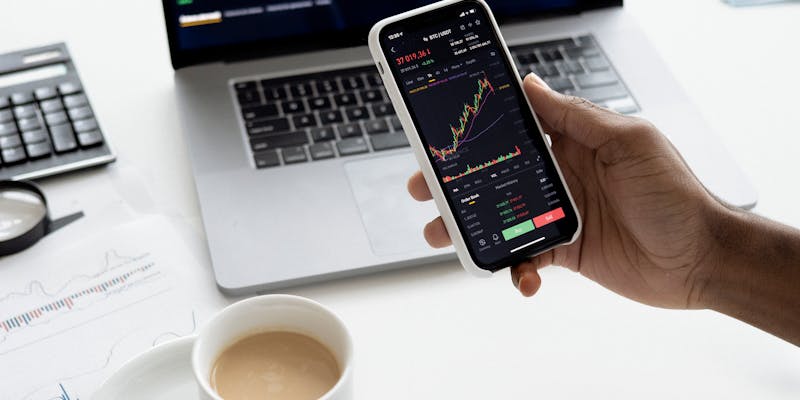If you trade internationally or are a worldwide investor, you may be familiar with contracts for difference or CFD trading. CFDs are legal everywhere in the globe, although they are illegal in some, especially the US and Hong Kong. They are particularly well-liked among European nations and Australia.
Give this comprehensive guide a read to understand the basics of CFD trading, US laws related to contracts for difference trading, and options other than CFD trading. So, what are you waiting for? Let's get started!
What is Contract for Differences or CFD Trading?

An agreement that revolves around a fundamental asset or monetary instrument, which might be a stock, currency pair, or commodity, is known as a contract for differences. The seller of the agreement believes that the actual asset will decline. In contrast, the purchaser believes the fundamental asset will gain in worth from the moment the contract was initially opened to the time it's closed.
The contract purchasers are neither trading the actual asset in question at any stage nor do they possess it or have any duty to do so. CFD traders may make money regardless of whether prices are rising or falling because they are only dealing in contracts.
As a result, when the market is volatile, CFD trading frequently gains popularity as traders try to make money by "shorting" the marketplace when it declines.
Even while CFDs have the potential to be successful, they are extremely complicated and risky products that should be left to more knowledgeable traders.
For What Reason Are CFDs Banned in the United States?
Although US citizens are often not allowed to create contracts for differences trading accounts because of government laws, CFDs are available on US equities and American stock market indexes.
CFDs are regarded as unregulated over-the-counter instruments because they may be traded on any trading platform that permits it between two or more willing participants. They have not been included in any authorized exchange, and because of their significant risk, neither the SEC nor the CFTC have let them be included in any authorized exchange.
Are CFDs Allowed to be Traded in Foreign Markets?
The majority of overseas CFD providers won't even let US individuals register an account since US regulations forbid US citizens from doing so both domestically and abroad. If one of the dual citizens does not reside in the United States of America, they could be allowed to register a CFD account. Furthermore, even if an overseas provider permitted a US citizen to register a CFD account, the account would probably not be subject to domestic regulation, which would raise the stakes for trading.
What are the Risks Associated with CFD Trading?
As mentioned earlier, CFDs are considered risky products. Here are some of the reasons for calling them risky.
Leveraged:
Only a small percentage of the total amount needed for each trade must be contributed by the trader; the remaining funds, often up to thirty times the invested amount, can be borrowed from the platform used for trading. Taking out a loan to invest is never a wise choice.
Unlimited:
You have the potential to lose a greater amount than you put in. In contrast with many other kinds of investments, you may end up owing money to your CFD provider if you lose a great deal of the money, you initially invested.
No Collateral:
No collateral means that the asset in question is not yours. The agreement you have with your CFD provider is your exclusive property. As a result, you are unable to gain from the fundamental asset's long-term capital growth.
Tumultuous:
CFDs are subject to market circumstances and can swing sharply between extremes without warning in volatile markets, just like the assets they represent.
Illiquid:
Depending on the CFD's trading volume, when you wish to close out the contract, a seller or a buyer may not be accessible.
What are the Substitutes for CFDs?

While there aren't any US-based legal investments that function exactly like CFDs, several do have certain characteristics:
Leveraged ETFs
Certain ETFs use risky derivatives to increase or decrease profits or losses in particular commodity and equity indexes. These may be bought or sold in a regular trading account without putting more money at risk than you want to and without requiring you to possess the asset being traded. Leveraged ETFs aren't meant for buy-and-hold investment; instead, they're meant for quick transactions. The SEC oversees them in the same manner as bonds and stocks.
Options
In addition to being leveraged to increase the movements of actual stock, index of stocks, or commodity, they also don't require collateral if you purchase a call or put contract and fail to exercise it. Also, the majority of popular platforms for stock trading provide options, and you cannot lose more cash than you deposit. The FINRA, SEC, and CFTC regulate options like shares and commodities.
Binary Options
Binary options, like CFDs, are an alternative investment that neither owns nor is obligated to acquire the asset that is being traded. They are a less well-known relative to ordinary options. They usually function on a scale from $0 to $100 and are a yes-or-no contract depending on the cost movement of the asset that is being traded within a specific term.
Another alternative is to sell to terminate the binary option at the going rate. You would need to register an account with Nadex, the sole US-regulated marketplace that supports trading binary options. It is concentrated on a few international stock indexes, currencies, and commodities.
Forex
The foreign exchange marketplace has significant leverage and a large potential loss of capital, much as CFDs. Similar to forex forwards, forex trading can include actual currencies; however, spot forex contracts do not require any collateral. Although it is an over-the-counter investment, the CFTC and NFA are in charge.
The Bottom Line!
Even though CFDs are flexible and well-liked in other countries, Americans are not allowed to trade them because they are considered too hazardous to be authorized in the US. Yet, it is still possible to optimize price fluctuations and control risk by employing different investment techniques. Analyze the specifics of the investment alternatives that best suit your needs after gaining a general understanding of your available possibilities.




